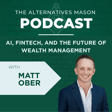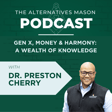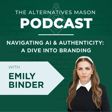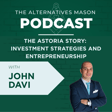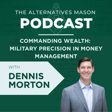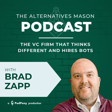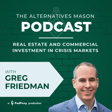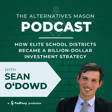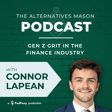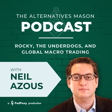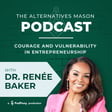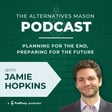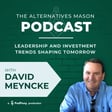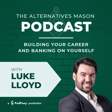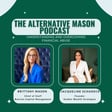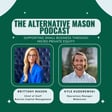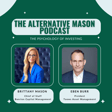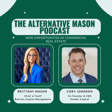
The Alternatives Mason: Building Alts Knowledge Brick by Brick | Episode 13 | Growing Up Banking Featuring Jamie Shulman
Welcome to The Alternatives Mason: Building Alts Knowledge Brick by Brick. Banrion Capital Management uses technology to help independent advisors scale and educate themselves on alternative investments. Since education is such a big piece of the Banrion mission and business, we are excited to kick off this series to dive into the nits and grits of the alternatives space. Episode 13 "Growing Up Banking" features Jamie Shulman, Co-Founder and Fund Manager at Meriwether Group Capital
A banking veteran with more than 25 years of lending and management experience, Jamie brings an entrepreneur’s level of energy, engagement and creativity to Meriwether Group Capital. Jamie’s diverse experience in management, mentorship and strategic business planning for growing companies makes him an invaluable and trusted advisor, going far beyond the boundaries of traditional lending.
Over the years, Jamie has built a reputation as a highly effective change agent, able to help founders and business leaders realize their companies’ potential through sound strategy, P&L oversight, and all areas of financial analysis and guidance. This high-level overview gives Jamie unparalleled insight into the opportunities and challenges of the targeted lower middle market businesses and will be a critical factor in MWGC’s ability to select the best possible slate of borrowers for the Hero Fund.
Jamie’s experience spans commercial banking, middle-market banking, retail banking and community banking with an emphasis on commercial & industrial and commercial real estate operations. Having spent 35 years in the Seattle and Portland markets, he offers a familiarity with the region that enhances MWGC’s understanding of the circumstances and hurdles of growing a business in the Pacific Northwest.
Off the clock, Jamie’s enthusiasms include mixology and BBQ (especially when they come together), rabid fandom for the Seahawks, and taking time to recharge with the family along the Pacific Coast. He spends significant time in the non-profit world, contributing his expertise to multiple community organizations.
Connect with Jamie
Learn More About Meriwether Group Capital: MGC Website
LinkedIn: Jamie Shulman
Connect with Jamie on 𝕏: @jamieshulmanpdx
Learn More About Banrion: Banrion Capital Management
Follow Brittany on 𝕏: @Brittany_Mason
Follow Banrion on 𝕏: @Banrion_Capital
Subscribe to our YouTube Channel: @BanrionCapital
Important Disclosures:
The opinions expressed on the “The Alternative Mason Podcast” are for general informational purposes only and are not intended to provide specific advice or recommendations for any individual or on any specific security.
It is only intended to provide education about the financial industry. To determine which investments may be appropriate for you, consult your financial advisor prior to investing. Any past performance discussed during this program is no guarantee of future results.
The guests featured on this program are participants on Banrion Capital Management’s platform. As such Banrion may receive payment for their participation as a platform partner.
Any indices referenced for comparison are unmanaged and cannot be invested into directly. As always please remember investing inv
